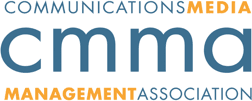Here’s what 2019 holds for the ACA
ACAThe Affordable Care Act (ACA) is making the news again as a coalition of the Trump administration and GOP-led states are appealing courts to take it down completely.
What’s at stake?
It depends on who you ask.
Many believe that the ACA lands squarely in the land of government overreach. Additionally, the act has its share of problems. Despite President Obama’s assertion otherwise, some people did lose coverage they liked. According to this article , many healthy people also saw “their premiums and out-of-pocket costs soar.” The same article identifies the “hardest hit ” as those “who earn just slightly too much to qualify for federal premium subsidies.”
Without the ACA, this USAToday article predicts drug prices will soar and rural care will suffer. Additionally, this article points to concerns about the 21 million people who are at risk of losing coverage, including those with preexisting conditions. For his part, President Trump tweeted his assertion that “Republicans will always support Pre-Existing Conditions” and that a replacement plan “will be on full display during the Election as a much better & less expensive alternative to Obamacare.”
Remind me about that penalty
It’s gone. While proponents of the penalty for not having health insurance say it’s a large part of making the ACA work, Congress declared the penalty unconstitutional in 2017. The new ruling goes into effect in 2019. That means taxpayers can go without healthcare or explore alternative options without seeing a ding on their tax bill starting next year.
How can employers prepare for the changes?
In the Fall of 2018, the Trump administration provided new ways for states to provide alternatives to the Affordable Care Act. So far, no states have taken the offer. Still, under new proposed rules, it’s not out of the question that employers may be able to stop offering group health care in the future. According to this article , the option could make way for employers to offer “employee health reimbursement arrangements (HRAs) for purchasing individual health insurance instead of providing group health coverage.”
While there is virtually no limit to speculation about what lies ahead, there’s no need to jump into action prematurely. Even though it’s a hot topic and a political lightning rod, many analysts—including those at Littler, our go-to on subjects like these—don’t expect to see many significant changes in the near future.
Don’t mistake that prediction for a free pass to ignore the subject though. Political persuasions aside, the passing of the Affordable Care Act represented a major overhaul of the United States’ healthcare system. The question of how to move forward continues—whether the bill itself remains in some form or gets dismantled. One thing is certain: This debate isn’t going anywhere and the consequences of every decision are vast.
About PayReel:
At PayReel , we minimize the time and effort it takes to get you ready for your project. Rely on PayReel to assume all of the risk associated with contingent workforce management and get back to the business at hand. We make sure everyone gets paid quickly and easily and have Client Relationship Managers on call around the clock to answer your questions. All you have to do is call 303-526-4900 or email us. The PayReel team makes live event, corporate media, and brand management payroll easier, faster, and seamless.
The post Here’s what 2019 holds for the ACA appeared first on PayReel .
